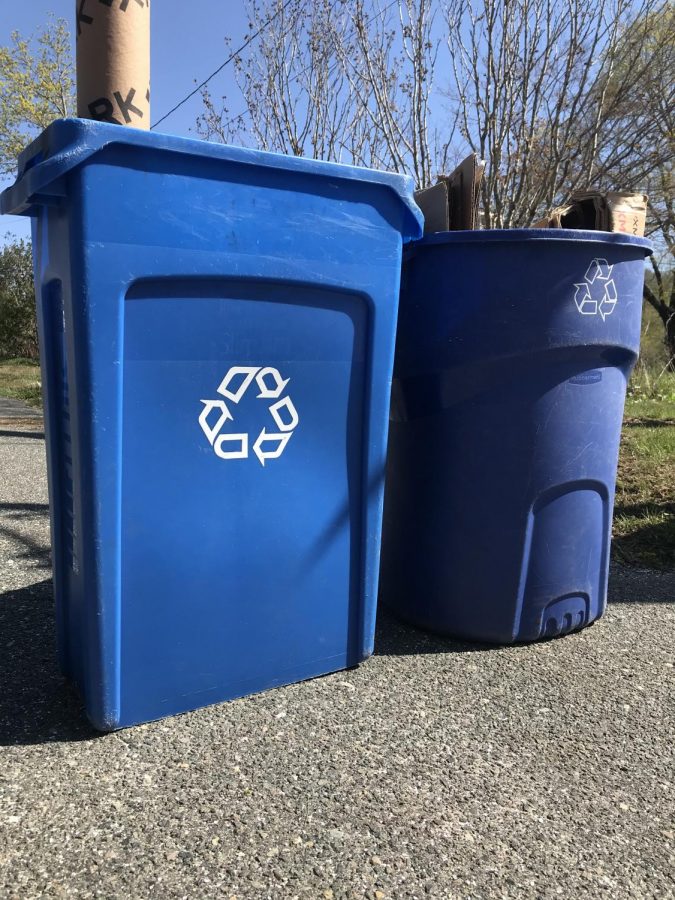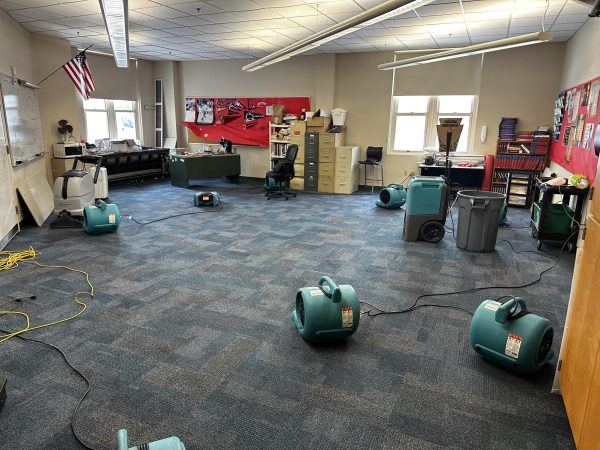What Happens To Your Recyclables?
May 7, 2021
“I try to recycle everyday when I have something I can recycle. I think it’s pretty important,” says Ipswich high school student Garrett Silveira, but where do our recyclables go? “It gets sent to some waste management sight to be crushed.” For the most part he is right. The process of recycling is fairly straightforward and simple.
So what exactly happens to your recyclables once they are taken from your driveway? Simply enough, the majority of recyclables are brought to recycling plants where they are separated by material. These groups are typically made up of cardboard/paper, glass, and plastic. These groups are compacted into blocks and then shipped out to companies who purchase them. However the rate at which some of these materials are recycled could be much better.
For example 66% of cardboard/paper is recycled, 27% of glass is recycled, and plastic recycling rates only reach about 8%. So what exactly is causing these materials, specifically plastic, to not be recycled? The answer is because the materials are incredibly dirty.
“If you put something messy in a bin, it contaminates everything else, and the whole bin goes in the trash. No one there is going to remove the chicken patties from the paper and no one is going to buy paper that has ketchup smeared on it.” says Mrs Lafrance, an IHS teacher. Your recyclables must be washed and clean before recycled or else they end up ruining the rest of the project.
Take China; they used to purchase a large amount of our recycled materials (roughly ⅓), but have stopped due to the amount of contamination in our recyclables. This made buying our recyclables no longer profitable. Now the materials that we thought were being recycled are sent to waste dumps like the rest of the garbage in our world.
However recycling can be a very effective process as long as it is done right. In order for the process to work, your recyclables must be clean and the right materials must be recycled. For example, putting plastic grocery bags into your recycle bins is “a big no-no”. When these bags are brought to the plants, they tend to break the machinery and bring the entire plant itself to a halt. Removing these plastic bags from the waste can be very difficult and time consuming for workers. Other items include styrofoam, batteries, bubble wrap, electrical cords, etc. These items can’t be typically recycled because they tangle up the machines; the objects are made up of recyclable materials that must be sorted into different groups, or simply because the material is not recyclable.
Recycling is a very effective and important process as long as it is done right. This includes everyone playing their role. Always be mindful of what you are recycling. Although constant throwing away of materials may seem wasteful, it is certainly the better alternative compared to throwing out a single non-recyclable and ruining the entire bin. A quick rinse of recyclables is also pretty important if there is still some residue left on the material. Overall be careful of what you toss into a bin so the future of your recyclables isn’t in a landfill!






